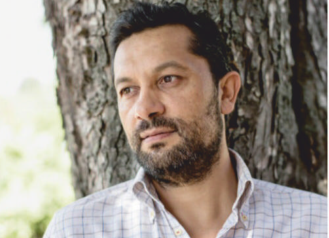As the enterprise grew, he directed everything. A national public-work scheme provided small wages, but enough. Each day the villagers would gather round him to get their tools and his firm, straight instructions: where they should dig a well, exactly how big it should be, when they should move the paprika plants from the greenhouse.
隨著企業的發展,博格丹掌管著一切。一項全國性的公共工程計劃提供了微薄的工資,但已經足夠了。每天,村民們都聚集到他身邊,領取工具,并聽從他堅定而直接的指示:他們應該在哪里挖井,井到底應該有多大,什么時候把辣椒從溫室里搬出來。
He reminded them what share of their harvest they had promised to give to others, to make them proud: they were givers now, not stealers, not spongers. Then he would wield his spade beside them, getting his hands dirty and urging them on. The agriculture project was only part of what he was doing in Cserdi. He took village boys to the local jail in Pecs, to show them that if they broke the law they could expect to be buggered there; it shocked them so deeply that crime in the village fell to almost nothing.
為了讓他們感到自豪,他提醒他們,他們曾許諾將自己的收成分給別人。他們現在是給予者,不是偷盜者,不是寄生蟲。然后,博格丹就在他們旁邊揮動鐵鍬,弄臟雙手,催促他們。這個農業工程只是博格丹在切爾迪所做事情的一部分。他把村里的孩子們帶到佩克斯當地的監獄,讓他們知道,如果他們違反了法律,就會被關進監獄。這使他們大為震驚,以致村里的犯罪幾乎降為零。

Teenage girls were taken to universities; would they rather be there at 18, he asked them, or lying on their backs in the wretched local labour ward? Every household’s budget came under his watchful eye, and he would pick through their rubbish too, finding the cigarette packets and beer bottles that proved they were wasting money. He barely had time for girlfriends, certainly not family. The villagers were all his children.
他把女孩們送去上大學;博格丹問他們,18歲時他們是想在大學里,還是躺在惡劣的當地勞工病房里?每個家庭的預算都在他的監視之下,他也會搜查他們的垃圾,尋找證明他們是在浪費錢的香煙盒和啤酒瓶。博格丹幾乎沒有時間找女朋友,當然也沒有成家。村民們都是他的孩子。
譯文由可可原創,僅供學習交流使用,未經許可請勿轉載。












